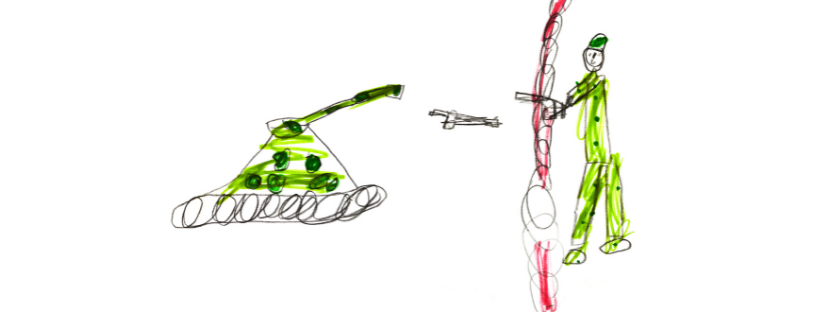
Incredibly shocking and sad news has spread around the world during the past week. Russia has started a war against Ukraine.
It means that now Ukraine’s 7.5 million children are in the middle of the war. Needless to say that their level of learning, mental health, the potential for long-term trauma - and their lives are at risk.
There are also children all around the world that are not physically in the middle of the war, but they are still very aware and affected by it. Children might sense that adults feel more stressed and worried than usual.
The smaller the child, the safer they get to be from the news and conversations concerning the war. They do not yet understand what 'a war' means and it is good that way. Close the tv when the news is coming, do not discuss shocking issues when children are close by, and just try to focus on normal daily routine. If the child is acting normal, there is nothing to worry about.
Older children see and hear things differently and absorb news easily, especially if they have their own phones. Photos in social media and news, as well as conversations between adults, bring the war closer. Those children who are not directly affected by the war – may be affected by it indirectly.
Five tips from a psychologist and child counselor
Many are frightened and don't know what to expect. Children might have questions.
So, to help educators, parents, family, and caregivers navigate the overwhelming task of responding to children's fears and worries, Ane Lemche, a psychologist and child counselor at Save the Children, has shared five tips on how to speak to children about war:
1. Make time and listen
Give children the space to talk when they want to – even if you're in the middle of something else. Encourage them to tell you what they know, how they feel, and to ask you questions.
2. Tailor the conversation to the child
A good guideline is: answer only to the question the child is asking.
Older children will need more details while younger ones may be satisfied just by understanding that sometimes countries fight. Be informed, keep calm, and answer questions honestly. Begin with simple information – too much detail may overwhelm and cause anxiety.
3. Validate their feelings
Speak to the child about how they feel. It is important that children feel supported in the conversation. They should not feel judged or have their concerns dismissed.
When children have the chance to have an open and honest conversation about things upsetting them, they can feel relieved.
4. Reassure them
Remind them that this is not their problem to solve. Adults all over the world are working hard to fix this. They shouldn't feel guilty playing, seeing their friends and doing the things that make them feel happy.
A good guideline is to continue doing basic things, staying focused on normal daily tasks.
5. Give them a practical way to help
For example, they could start fundraisers, write letters to local decision-makers or create drawings for peace.
Children who have the opportunity to help can feel like they are part of the solution instead of feeling helpless.
What not to say to children about war?
As mentioned above, it is a good basic guideline to tell children only about those things they are directly asking about. Do not tell too much.
If a child asks a question, answer it taking the child's age into consideration. One question might be enough to ease the child's mind, or then more and more things come up - either way, answer the child's question his/her age level in mind.
Do not exaggerate or frighten the children. There is no need to list how many children lost their homes or how many people lost their lives. Avoid all traumatizing talk, shocking news, and bloody photos.
Ways to help the children and families in Ukraine
.png)